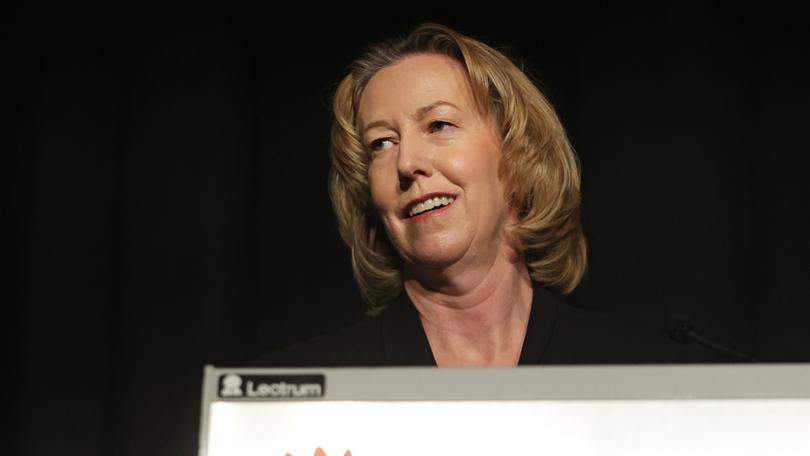Woodside Energy’s customers ‘won’t be paying a premium’ for ‘cleaner’ gas
The company’s boss Meg O’Neill says it needs to cut costs to improve the viability of some carbon emission programs, but it has no prospect of recovering the investment from gas buyers.

Woodside Energy has warned its shareholders they could have to wear the bills for the company’s decarbonisation programs, with little prospect of passing on the costs to its mainly Asian gas buyers.
Detailing its climate action strategy ahead of another showdown with investors and activists at next month’s annual meeting, Woodside chief executive Meg O’Neil revealed the group is looking at costly “large-scale abatement” options for its LNG plants as part of hitting its 2050 carbon emission reduction targets.
However, Ms O’Neill ruled out recovering the costs from LNG buyers, despite global pressure for companies to take responsibility for the emissions generated in the production of the commodities they buy and use.
Sign up to The Nightly's newsletters.
Get the first look at the digital newspaper, curated daily stories and breaking headlines delivered to your inbox.
By continuing you agree to our Terms and Privacy Policy.Echoing comments by Australia’s battery minerals producers, she said LNG buyers were not willing to pay a price premium that recognised gas produced with fewer emissions or abated with carbon offsets.
“LNG buyers are not discriminating based on carbon intensity at the source,” Ms O’Neill said on Tuesday.
“(They) are very price sensitive animals. As you can imagine, they’re in a competitive landscape as well for market share, so right now they are not paying anything for additional costs associated with lower-carbon intensity LNG,” she said.
According to its presentation on Tuesday, Woodside was exploring large-scale programs to abate 35 million tonnes of carbon produced by its LNG plants.
Ms O’Neill said the programs would use existing technology but “would be challenging to deploy cost-effectively”. So, she said, “the pressure is on” Woodside to find cost savings to make them viable.
“That’s absolutely the challenge we face today, to decarbonise an old facility is not inexpensive.”
Woodside insists it has a pathway to achieve net zero Scope 1 and Scope 2 emissions by 2050, with its plan including $US5 billion of investment in so-called “new energy” projects and augmented by a new target of cutting Scope 3 emissions by 5 million tonnes a year by 2030.
However, the climate activists who have campaigned against Woodside for years are dismissive.
They say the company’s commitment to climate change targets should be measured by Woodside ruling out the development of any new oil and gas fields.
Woodside’s climate transition plan will go before shareholders again at the annual general meeting on April 24 in a key test of shareholder support for the board and management.
Nearly 49 per cent of the last vote, in 2022, went against the plan, emboldening Woodside’s critics.
Ms O’Neill repeated on Tuesday that Woodside had listened to the feedback from shareholders since then to “understand your areas of concern”.
“We have changed quite materially in how we are articulating and evolving our strategy,” she said.
“The lived experience in the business is that we are very focused on how climate change affects every decision we make.”
More to come.
Originally published as Woodside Energy’s customers ‘won’t be paying a premium’ for ‘cleaner’ gas
